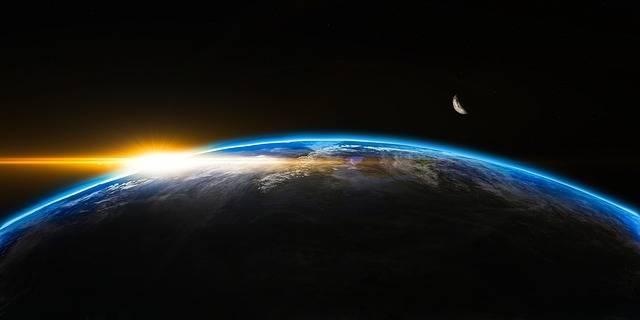
By Keary Shandler
To stay out of ‘damage-control’ mode, today's business needs to be tuned into a nexus of complex global systems integrating economic, societal and environmental relationships. If business needs to operate differently, then we need to teach business differently, taking up the opportunity to foster interconnectivity of knowledge and critical thinking between disciplines.
Educating business leaders on science is vital.
The impact of climate change is not happening ‘over there’ to someone else. It’s happening in our own backyard, today. For the first six months of 2017, the United States alone experienced losses in excess of $1 billion as a result of nine weather and climate disaster events. With the recent devastation of hurricanes Harvey and Irma, record-breaking statistics achieved in 2016 have now been surpassed. These threatening events not only affect local, regional and national markets, but reach far beyond to global economic scales. Whether your belief that extreme weather events are a result of increased global temperatures or not, as an industry or a business, it’s practical to consider the long-term economic impact. Given enough of these occurrences, businesses and entire industries, may reach points beyond recovery. That translates to no longer being able to afford a simple mitigation approach in business. Global sustainability needs to be a consideration in order for business sustainability to even be entertained - without our natural capital, what other capital do we need to worry about?
In CSR-world, we often cite the “people, planet, profit” tag line. From a hierarchal perspective, most businesses still have the priority of “profit, people, planet” You can play the shell game with these words all you want but if you don’t have “planet” first in the lineup, you can forget having to worry about anything beyond that. Simply put, if we continue to trespass beyond the operating limits of these boundaries, conducting business is the least of our worries.
Over the past two years, a group of passionate business school educators (in Dubai, Perth, Singapore and Munich), have daringly introduced MBA students to the nine Planetary Boundaries concept, "within which humanity can continue to develop and thrive for generations to come."
Traditionally, business students analyse case studies and translate knowledge into academic essays. These types of assessments have value in connecting ideas and theories in a largely abstract context. If we are serious about promoting a fundamental change in behaviour, we need to immerse students in the reality of the issues beyond hypothetical scenarios. This is where we have strived to push the boundaries with an arts-based assessment within our MBA programmes, utilising creativity to generate increased knowledge.
Our assessments asked students to form groups and create a 10-minute video using their smartphone, connecting one or two of the planetary boundaries with industry. This film-making process became an extremely powerful tool in understanding the complex relationship between business, ecological and social environments. Importantly, it helped students realise that all three systems should be collectively considered in business decision making.
By venturing off campus and physically getting their hands dirty, students were literally able to ‘reframe problems through a new lens’. This is an appropriate metaphor as this new perspective on scale (time and place) became an undeniable reality to them. Through the experience, the hard truth sunk in - this ‘climate change thing’ wasn’t such a distant notion. The mental link was made on how extreme weather patterns were more frequently disrupting supply chains, erratically influencing profit margins and challenging operations. Further pennies dropped with the realisations that clean water comes at a tangible cost and that chemical run-off from excessive use of fertilisers, negatively impacts coral reefs and native marine life hundreds (if not thousands) of miles away, in turn impacting food prices, tourism revenue and employment figures. The interconnectivity of these witnessed relationships was seen, heard, smelt, touched and emotionally experienced. This is a level of learning that cannot be achieved through writing a business report.
We are seeing heartening evidence as to how this assessment type is making an impact on the thinking of future business leaders (this is the goal by the way). Some students are already in strategic roles and making changes, creating initiatives and having those educational conversations. The conversations are important steps to help shift corporate behaviour from short-term reactionary thinking to adaptive and transformative mechanisms of resilience.
As business school educators, our understanding of the complexities is often imperfect. However, it remains our responsibility to learn how we can create effective communication of science. Evidence needs to be understood by business (which doesn’t mean dumbing down the science) and that requires working together with scientific communities.
We recently took a bold step in this direction and presented our film-making results at Resilience 2017 – an event that brought together scientists, policy makers, practitioners and academic-types in Stockholm, to discuss challenges and opportunities for global sustainability. It’s clear that business education has a responsibility to explore diversified learning methods and to help create a new social contract with the very systems that have enabled us to prosper. We will continue to use the planetary boundaries to bridge the gap between business and science, aiming to produce responsible business school graduates and global Earth stewards.
Keary Shandler is an affiliate lecturer at Murdoch University Dubai.
TriplePundit has published articles from over 1000 contributors. If you'd like to be a guest author, please get in touch!














